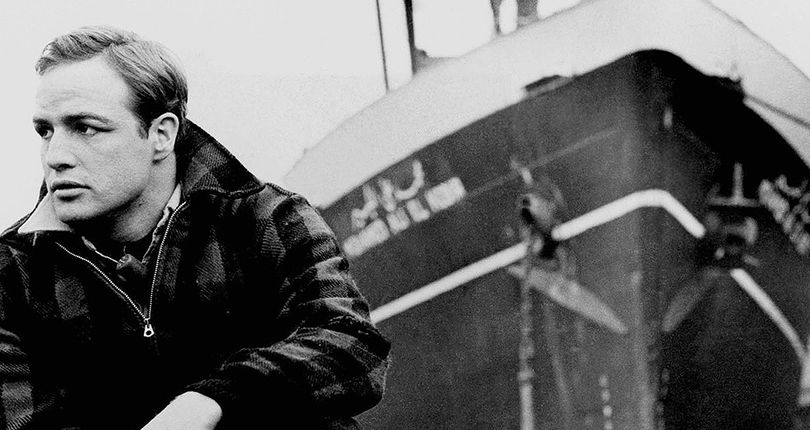‘On the Waterfront’: dueling interpretations

You can look at Elia Kazan's 1954 film "On the Waterfront" in a number of ways. A multiple Oscar winner, snaring the top four -- Best Film, Best Director for Kazan, Best Actor for Marlon Brando and Best Actress for Eva Marie Saint -- the film is most obviously seen as a stirring saga of one man's battle to do the right thing.
That man is Terry Malloy (Brando), a former boxer, now punch-drunk dock worker who finds himself caught between the union boss who controls the docks (Lee J. Cobb) and those who want a work situation not tied to organized crime. Malloy is doubly caught because his brother (Rod Steiger) is the dock boss' flunky.
Then he meets Edie (Marie Saint), sister of a man Terry saw being murdered. And his growing affection for her causes him to question his long-held loyalties and consider taking a stand against corruption. Which, by agreeing to testify against the murderers, he ultimately does.
But "doing the right thing" means different things to different people. In 1954, the infamous House Un-American Activities Committee (HUAC) was still a powerful entity. Formed in 1938 as a means of investigating suspected Communist activity in the U.S., it gradually became a witch hunt, extending to Hollywood and the entertainment industry. Witnesses were issues subpoenas forcing them to appear before the committee, then interrogated not only on what they believed or had done but also ordered to name others.
Those who refused could be accused of contempt of Congress and jailed. And many, whether arrested or not, were fired from their jobs and blacklisted by employers. The experiences of screenwriter Dalton Trumbo and the other members of the Hollywood Ten were examined in the recent film "Trumbo," which detailed how many in Hollywood were treated.
Kazan and at least two of his "On the Waterfront" colleagues, screenwriter Budd Schulberg and actor Cobb, all testified before HUAC. And all named names (though Cobb, the story goes, struggled for two years and ultimately did so only reluctantly). As such, it's no great stretch to see "On the Waterfront" as a dramatic justification for the actions of people who agree to ... well, name names.
However you view "On the Waterfront," though, no one can argue that it isn't a great film. Just as no one can argue that Kazan wasn't an influential stage and movie director.
You'll get the chance to judge for yourself on April 24 and 27 at Regal's NorthTown Mall and Coeur d'Alene Riverstone Stadium Cinemas. The movie has long been available in a variety of formats, but TCM is reviving it on the big screen for 2 and 7 p.m. showings. You can order tickets by clicking here.
Then go back and read your history. It's been more than six decades, but being true to one's ideals may be more important now than ever.
